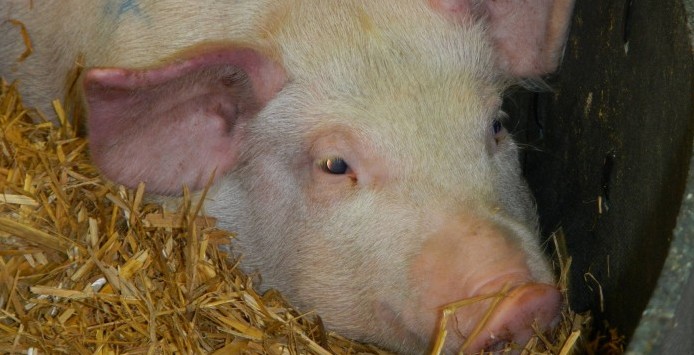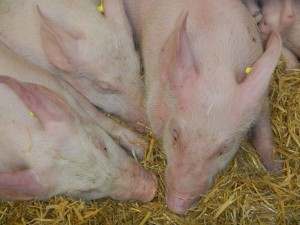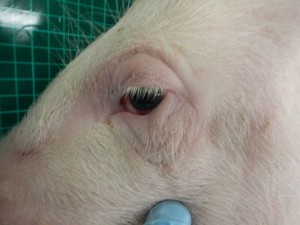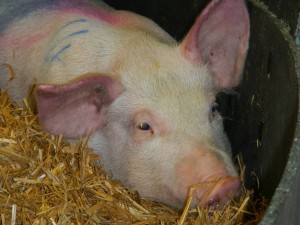Confirmation of African swine fever (ASF) in Belgium comes hot on the heels of a worrying increase in the presence of the virus in eastern and central Europe. The Belgian authorities are attributing this spread to ‘leftover food being left behind by travellers from infected areas’.
In particular, there has been a rapid escalation in Romania, including in some of the country’s largest pig farms, resulting in 140,000 pigs being culled. This prompted the Animal and Plant Health Agency (APHA) to raise the risk level of infected imports reaching the UK to ‘medium’.
Prior to news of the Belgian case, APH maintained that the ASF to the UK pig population remains ‘low’, however. To ensure this remains the case, the agency, along with industry bodies like the NPA, is continuing to remind all pig keepers of the steps they need to take.
The key messages include:
- All pig keepers and the public must ensure pigs are not fed catering waste, kitchen scraps or pork products, thereby observing the swill feeding ban
- Feeding of meat products, including swill, kitchen scraps and catering waste, to wild boar or feral pigs is also illegal
- A campaign to highlight the dangers of swill feeding and more information can be found on this link
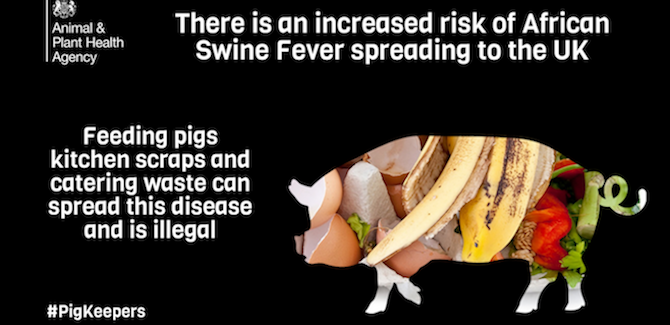
- All pig keepers should ensure that visitors to your premises have have not had recent contact with affected regions
- Anybody returning from the affected EU member state should avoid contact with domestic pigs, whether commercial holdings or smallholdings, areas with feral pigs or wild boar, until they are confident they have no contaminated clothing, footwear or equipment.
The symptoms
- Pig keepers and vets should remind themselves of the clinical signs for ASF and images. Photos and descriptions of clinical signs and pathology of ASF can be viewed here. The following are three examples.
- Although mortality in infected animals is almost 100%, the initial rate of ASF spread in a pig farm can be slow, therefore the possibility of ASF should be considered even for single pigs with haemorrhagic lesions, lethargy, skin discolouration or petechiation and high fever
- Pigs suspected to be affected with African or classical swine fever must be reported immediately to APHA – see https://www.gov.uk/guidance/african-swine-fever for more information.
A poster for pig keepers summarising actions they can take can be downloaded here
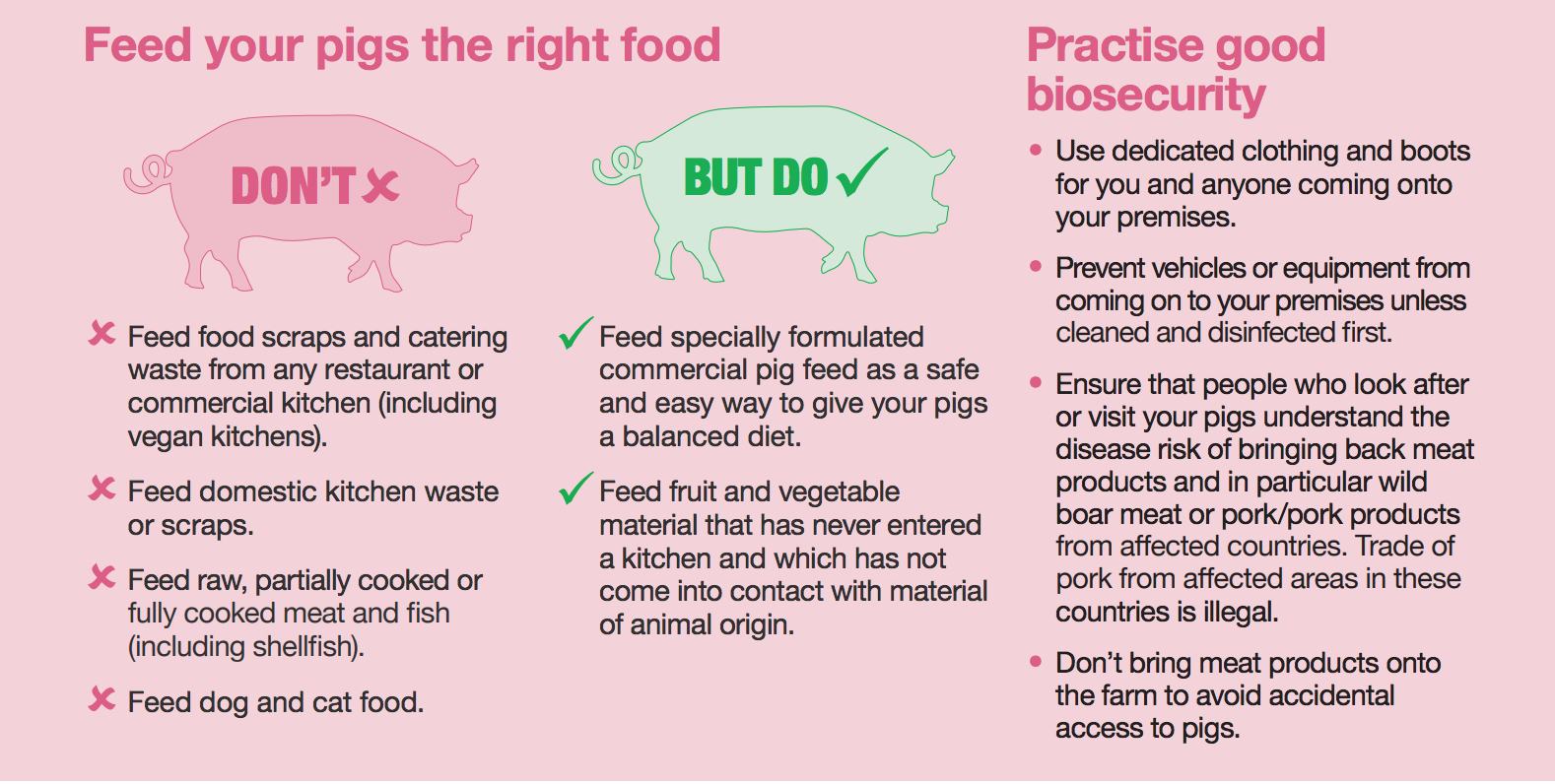 NPA chief executive Zoe Davies, said: “The health of our pigs is fundamentally important to our sector.
NPA chief executive Zoe Davies, said: “The health of our pigs is fundamentally important to our sector.
“A notifiable disease outbreak would not only needlessly result in the loss of many pigs and annihilate our burgeoning export market, but would significantly impact on countless families, their staff, local businesses and tourism for months.
“Feeding illegal food waste, however harmless it might seem at the time, is just not worth the risk.”




